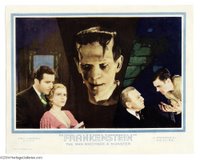 book at sometime and see what was going on. As we come to a close on this novel, weigh in on one of the following questions. Feel free to Google it and find intelligent answers. Give some good reasons that make me believe you have some knowledge about the book. Be sure to include the number of the question you choose.
book at sometime and see what was going on. As we come to a close on this novel, weigh in on one of the following questions. Feel free to Google it and find intelligent answers. Give some good reasons that make me believe you have some knowledge about the book. Be sure to include the number of the question you choose.1. Compare the novel to a Greek tragedy, especially as it develops the themes of ambition, overreaching, hubris ("overweening pride"). Which characters display these "epic" flaws?
2. In classical and neoclassical doctrine, the "greatest of all contests" was the struggle of reason to control passion. In the nineteenth century, passion began to rise in esteem against reason. Feelings were more important. Yet the contest seems to continue. What elements of that struggle do you find in the novel? The characters of Victor and the monster are especially relevant to look at.
3. "Mary Shelley in Frankenstein clearly comes down on the side of nurture in the Nature-versus-Nurture controversy." Attack or defend.
4. "Victor Frankenstein and the monster share the same personality. Like father, like son." Attack or defend.
Questions from Harris, Robert. Virtual Salt. "Ideas for Analyzing Frankenstein." Version Date: June 18, 2000
1 comment:
In Point Number Four I can say that they can't be expressed just like a father and his son, because they are more than that, they are two separated parts of one, so if you can see this you have to see that they don't have the same personality. I think that they are oppositives personalities.
Post a Comment